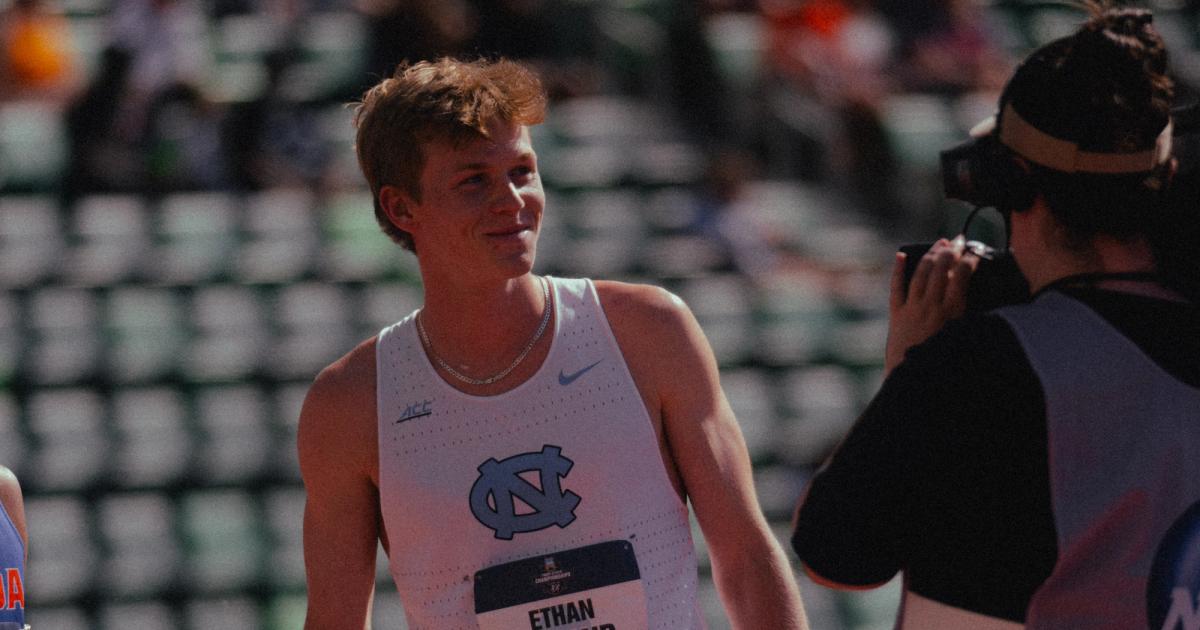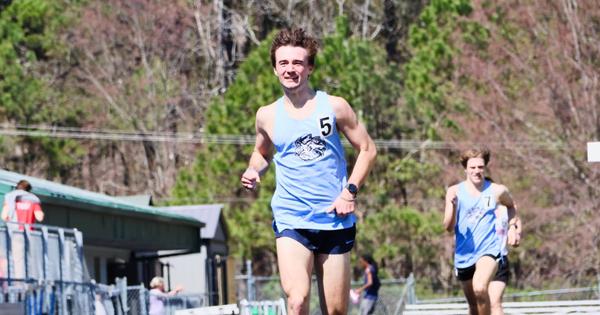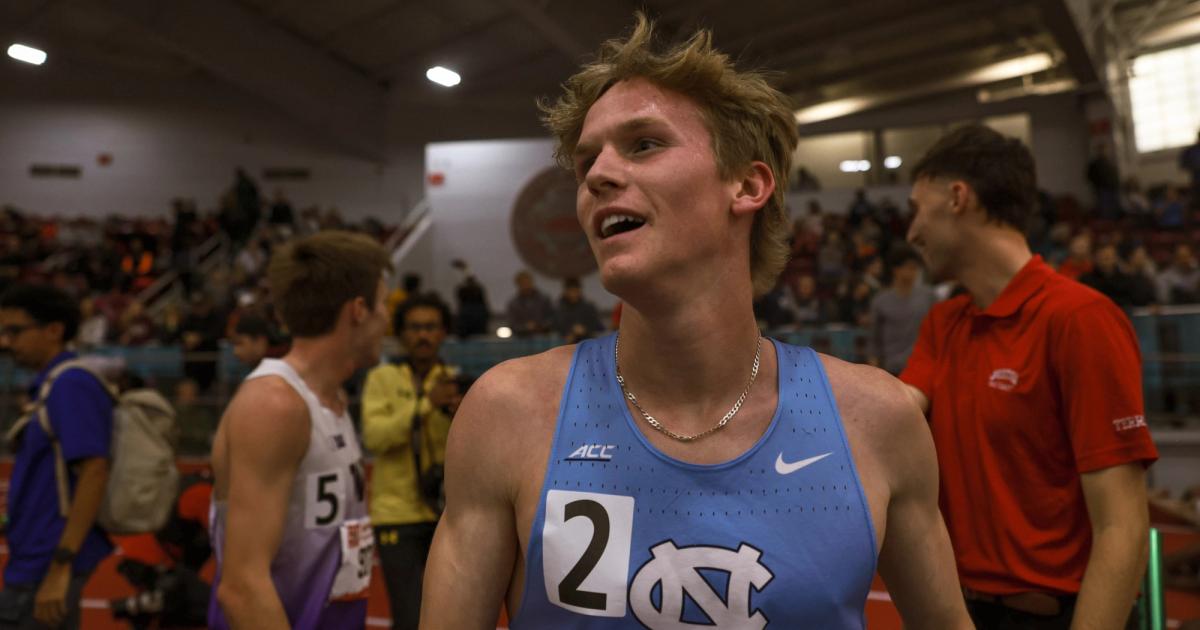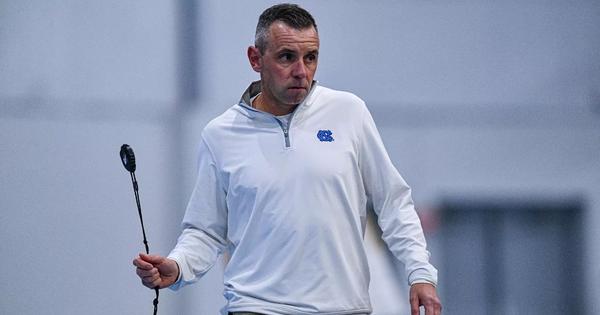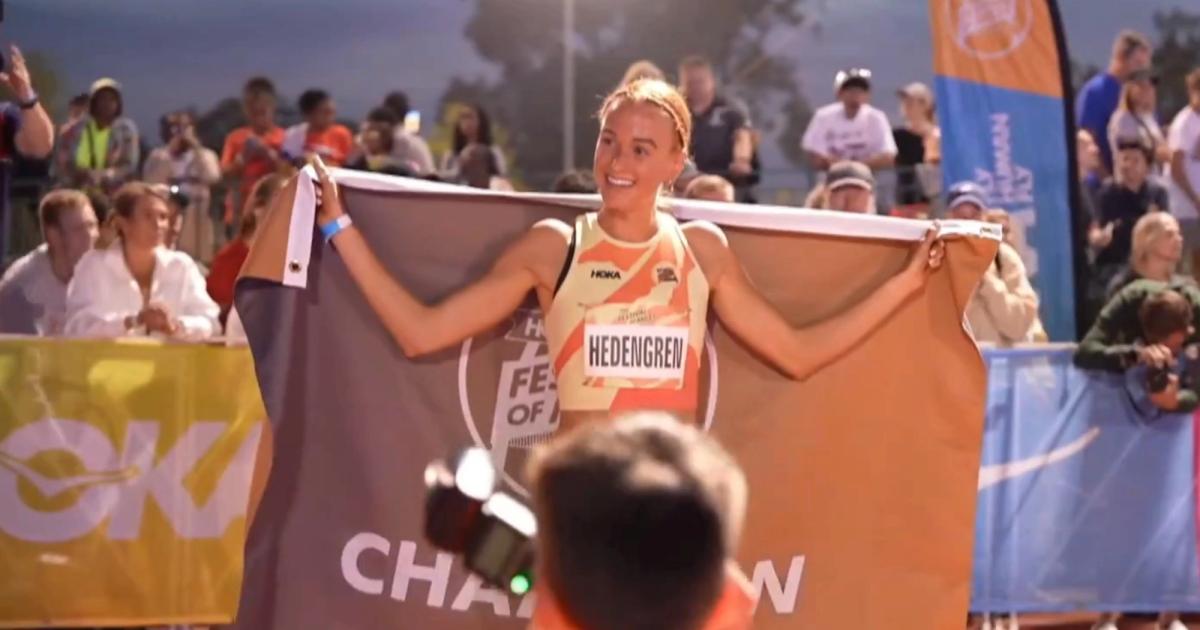By Keenan Baker
June 9, 2025
"If you don't think you were born to run, you're not only denying history. You're denying who you are."
- Christopher McDougall, Born To Run
The 3,996 elementary school children participating in the 2012 Mercedes Kids’ Marathon ought to start streaming in at any moment. The race, held annually in Birmingham, Alabama, is a mile long—the culmination of a marathon’s worth of miles logged over five months during PE classes at local elementary schools. February weather is in full stride. The temperature gauge reads 32 degrees, but the wind is whipping hard enough to make it feel as cold as 17.
For delighted observers, it’s a cute precursor to the thousands of grown up marathoners and half-marathoners who will fill the streets the next day. But for the children, this is their chance to prove with undeniable evidence that they are the fastest kid in their school.
Every single child will receive a medal when they finish, right after they waltz through a high-five tunnel littered with their favorite heroes. Captain America, the Chick-fil-A cow, and—because it’s ‘Bama—Aubie the tiger and Big Al the elephant.
It’s a joyous scene...Smiles abound, parents cheer, and the kids wander post-finish exhausted and proud of themselves. “Future Olympic stars, today!” exclaims the announcer, audibly beaming.
Which makes it all the more stark when the first two kids come into view and one of them crosses the line in tears, finishing in a dead-heat to get second place.
It makes for quite the picture. The size-too-big shirts, the bright-red K-Swiss Ironman Flow kicks, the sheer joy on the faces of the audience, and Aubie the Tiger cheering them both on. Each child looks as though they’ve never wanted anything more in their life than to win this mile.
The third grader who finishes second, the one in bib #9, is clocked at 6:03—a blazing fast mile time for anybody. But what’s unseen is the fall he took about 400 meters out from the finish. Ran smack into a security guard around the final corner. BAM. He got back up, fought to make up the distance, but the tears were flowing.
It wouldn’t be the last time that kid wearing bib #9 pushed his body to the limit in a race. In fact, that 2012 Mercedes Kids’ Marathon might’ve been the catalyst for Ethan Strand—it wouldn’t make sense any other way.
The Beginning
Strand, now the NCAA record holder in the indoor mile and 3000m, looks back on this day and smiles.
“I remember being so mad and so upset that I lost that,” said Strand, laughing. “It sucked. I was competitive. I wanted to run fast and beat everybody.”
Strand was born in 2002 into a family of runners. Lori, his mother, was a competitive runner for the University of Alabama at Birmingham, and coached for Samford University’s cross country team as Ethan was growing up. Scott, his father, placed 15th in the 2004 US Olympic Trials marathon, was a renowned steeplechase athlete, and is part-owner of a beloved, local chain of run specialty stores called the Trak Shak, where Ethan has worked.
With a background like Ethan’s, it would be easy to chart a linear path between who he was raised by and his current status as one of America’s most promising distance running talents. He might as well have popped out of the womb in trainers, reading off splits and planning out miles.
“He started walking when he was about nine months old,” said Scott. “By the time he was a year, he was running around the yard.”
“When he was probably a year and a half old, you know, we'd go out in the yard, and we had this little grassy slope in our front yard,” remembers Scott. “We just played ‘On Your Mark, Get Set, Go!’ He would start at the top of the yard. And he would say, ‘Marksetgo!’, and he would just run down into my arms.”
Even as a toddler, it was evident how much Ethan enjoyed running. Countless hours were spent running around the house, asking to be timed, up and down the hills. His desire to compete wasn’t solely limited to running, though—dinner had to be finished first, and vacations were just opportunities to bike six miles.
“His personality very early, showed that he loved competing and competition,” recalled Lori. “And we always tried to make it very fun for him for as long as we could.”
Lori and Scott made a point not to force their children into following directly in their footsteps, running or not. In the debate of nature or nurture, Ethan’s desire to run seemingly stemmed from both.
“He's always been very passionate about winning in anything, soccer, baseball, recreational basketball—everything,” laughed Lori. “He's very passionate about being the best he can be, in whatever he does.”
As he “graduated” from the Mercedes Kids’ Marathon, Ethan stayed active. Travel soccer and running fought for preeminence for years. It didn’t hurt that he was great at both.
“I would finish [cross country] practice in middle school, I'd run 15 to 20 minutes, maybe do some hill sprints, and then I'd go and have a two-hour soccer practice,” said Ethan. “I think it really hit me that I needed to choose one when I won a state championship my freshman year.”
The Vestavia Hills track team, due to its size or its exclusivity, mandated that if a runner played another sport, they had to run on the JV team. Ethan didn’t want to run JV. As a high school freshman he won his first two state titles in the highest division of Alabama outdoor track by running a one-mile race in 4:21.28 and a two-mile race in 9:30.26—and there was no looking back.
Ethan gives particular credit to the runner in third place of that two mile, James Sweeney, a senior on the Vestavia Hills team who ended up running at Butler University.
“To have someone who doesn't really know me, watches me run a little bit, and is then very invested in what I'm doing was super cool,” said Strand. “I don't feel like most people get that … so to have a teammate that was like that right away was super cool, super helpful.”
For Scott, the teammate support system can’t be underappreciated.
“James would come to the house and pick him up and they'd go do the long run,” said Scott. “So James was the one that also helped Ethan be accountable at that young age.”
“We joked ‘Good job, James, you developed Ethan to the point where he's now beating you.’”
A Short List of Ethan Strand’s High School Accolades
Ethan’s sophomore year continued the momentum, winning a state title in cross country, a state title in the indoor mile, and a state title in the 800 meters, 1600 meters, and 3200 meters at the outdoor meet.
Junior year cross country saw major improvements with a state title, 6th place at Foot Locker Regionals, and 29th place finish at Foot Locker Nationals—leading to Strand’s first Alabama Gatorade XC Runner of The Year award. Track and field wasn’t contested due to the COVID-19 Pandemic.
Senior year cross country saw Strand take 12th at the state meet but 14th at the RunningLane National Championship. He also ran 14:36.88 for the 5k at the Southern Showcase, breaking the state record and leading to his second Alabama Gatorade XC Runner of the Year Award. He continued his dominance in indoor and outdoor track, winning the state titles for the 800, 1600, and 3200 meter races for both seasons, along with a national title at the Adidas Indoor National mile.
For those counting, that’s 14 individual titles at the highest level of competition in the state of Alabama. Ethan Strand graduated from Vestavia Hills in Alabama a bonafide star, and it was time to become a Tar Heel.
Running with The Heels
For Ethan, a prep runner with an absurd amount of promise, the coaches came calling. But recruitment during a pandemic followed an unorthodox schedule.
Zoom meetings were the litmus tests for a program. Athletes could have conversations with coaches, but in-person visits with coaches weren’t permitted. With the uncertainty around pandemics and programs, there wasn’t a more disorienting time to make life-changing decisions.
“We got it narrowed down between Carolina and Virginia,” remembers Scott. “[Ethan’s] like, ‘There's nothing that I don't like about Virginia either, you know.’ I think it was just a gut feeling.”
Heading the two programs were two of the best coaches in the game: Chris Miltenberg for the University of North Carolina and Vin Lananna for the University of Virginia.
Prior to taking over at UNC, Miltenberg made a name for himself at the helm at Stanford, which enjoyed great team success under his guidance. Beyond the team aspect, Miltenberg has a track record of developing the best high school athletes into the best college and professional athletes—like Grant Fisher, Sean McGorty, and Emily Infeld.
However, running for Vin Lananna, the then-president of USA Track and Field and head men’s coach for the 2016 Rio Summer Olympics, was just as appealing. When it came time to make a decision, it wasn’t easy.
“It was very difficult to tell Vin Lananna that he wasn't coming to Virginia,” said Scott. “He's a legend, so it'd be like telling Bear Bryant, you're not going to Alabama.”
But Ethan did. Maybe it was because he’s an Auburn fan, and Auburn fans have no problem with telling Bear Bryant no. Regardless, he committed to UNC. Senior year followed, and upon graduation, he was officially a Tar Heel.
Ethan realized, as many high schoolers do upon graduation, that he had some growing to do.
“Coming out of high school, I could grind it out because I wanted to win,” said Ethan. “But I really wasn't that strong.”
When Ethan talks of strength, he primarily speaks of mileage. As a high-school runner, building too much mileage can mean burnout—too much too soon, and any hope of long-term development flies out the window. In this area, and many others, Ethan ascribes his success to Coach Miltenberg.
“You take a kid who, coming out of high school, is not strong, and I feel like most college coaches, their first instinct is to just throw a ton of mileage at him and hammer him into the ground and say ‘It's either going to stick and he's going to be really good, or it's not,’” said Ethan. “So Coach Milt had a lot of patience with me. And I think that patience has paid off.”
Sheer will and determination (along with good workouts and training, of course) propelled Ethan to this point. But to get him over the hump, he had to trust something beyond his control. Coach Miltenberg was up to the task.
“I think what we do better than anybody, is being really, really dialed in on and connected to each of our people,” said Miltenberg. “That's what we enjoy the most, that individualization, fine tuning, and connecting.”
Some of that fine-tuning and connecting meant trusting the first two years would be about building a base. For Strand, that meant being okay with a 12th place finish in the 2023 NCAA Outdoor 1500m, and finishing 45th in the nation the following cross country season. These were great results, but they weren’t where he wanted to be.
In 2024, his patience paid off.
2024 USA Olympic Track and Field Trials
If you’re a USA track and field athlete hoping to get to the Olympics, you have to go through the Trials. For the 1500m racers, it means running three races in the span of four days—designed to whittle the entire field down to the three top metric milers in the nation.
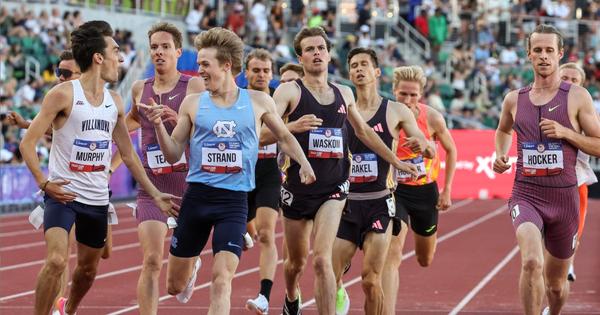
Photo by Kevin Morris / @kevmofoto
In this picture, Strand celebrates with fellow NCAA runner Liam Murphy, as they both qualified for the Final round of the Olympic Trials—one step closer to going to the Olympics. They finished six-thousandths of a second apart to finish second and third in their heat, and even though they didn’t make the team (nor did any of their NCAA counterparts in the race), it was a job well done.
For Strand, it marked the end of a season that catapulted him into the conversation for the best milers in the NCAA—potentially the nation. The feel-good story carried over to the 2024 cross country season, where he finished 8th at the NCAA Championships right in front of (guess who?) Liam Murphy, and behind his teammate and training partner, Parker Wolfe.
If that performance hinted at Strand’s newfound strength, his best races were yet to come.
Two Races At Boston University
The 3000m NCAA Record - 7:30.15 - December 7th, 2024
“And it looks like it’s going to be Ethan Strand…
IT IS STRAND!
7:30.15!
OH MY GOODNESS!”
“An absolutely unbelievable performance by the Tarheels at Boston University.”
“They crush the record by over SIX SECONDS!”
The NCAA Record - 3:48.32 - February 1st, 2025
“Running for the Tar Heels, coming up,
It’s the BELL LAP.
3:20!
And here comes Strand, trying to make a move,
Can he do it again … Ethan Strand …
FLYING down the back straight.
Ethan STRAND
Going after records again, potentially in the men’s mile.
3:40 on the clock, he’s going to be sub-3:50 EASILY.
ETHAN STRAND!
BLOWING THIS ONE AWAY!
THE WINNER FROM NORTH CAROLINA!
THREE - FORTY-EIGHT - POINT THREE TWO,
ETHAN STRAND.
Wow. What a run.”
The magnitude of these runs cannot be overstated. The former, a 7:30.15 3000m, shattered the NCAA record, just ahead of Parker Wolfe, who also got under the old college best. Distance running records don’t get broken that badly, that powerfully. But Strand and Wolfe both did so together.
In February, Strand did it again, not only breaking the NCAA record but running the (at the time) third fastest time in the indoor mile in the history of the world.
THIRD FASTEST. IN HISTORY.
These two races led Coach Miltenberg to call Strand and his teammate Wolfe “the next two great American distance runners.” He wouldn’t be alone in making that assessment. The track world was abuzz not only about Strand and Wolfe’s massive strides, but also strides being made by their competitors.
Liam Murphy and Marco Langon from Villanova ran 7:35.47 and 7:36.87 in the 3000m. Yaseen Abdalla of Arkansas and Gary Martin from Virginia also dipped under the NCAA 3000m record in the race with Wolfe and Strand. Martin, a runner recruited to attend UNC a year after Strand, ran a 3:48.82 mile later in the winter.
All that talent rounding into form at the same time meant that the 2025 edition of the NCAA Indoor Track and Field Championships would be its fastest ever. For Strand, not only were bragging rights on the line—so was his future.
“The biggest stress for someone who wants to run pro is winning an NCAA title,” said Strand. “You can run fast, but you’ve got to win if you want to get paid. You’ve got to win.”
NCAA Indoor DMR
Strand’s first race of the NCAAs was the DMR (short for Distance Medley Relay). The relay consists of four teammates, each running a different distance: 1200m first, 400m second, 800m third, and 1600m last. Strand would be UNC’s anchor leg.
“In high school, I ran relays all the time. There was no pressure. It was literally just like, ‘Go have fun, it doesn't matter, it's a relay in high school,’” said Strand. “And I guess these have a little bit more stakes to them.”
In high school, it’s common for distance runners to run relays for their school. There’s generally enough gas in the tank to run to their limit and come back for one last lap—the last event of every meet, the 4x400m relay. But, upon graduation, it’s rare to run in a race with a team. College programs tend to be made up of enough sprint specialists to field 4x400m squads without dipping into the distance running well.
“I don't get nervous before races anymore because I feel like I prepare well enough, and I’m ready for whatever. So I don't really get nervous,” said Strand. “But in that DMR, I was definitely lining up nervous. And that's something that I haven't had to deal with in a long time.”
His teammates, to their credit, did a valiant job. Wolfe, who battled sickness and injury most of the indoor season post-Boston 3000m, ran the leadoff leg and held the lead until slightly fading on the last lap to pass the baton off in 4th. Nick Steed, the 400m runner, ran a solid leg to keep the team within the main group of five contenders. Drew Regnier, running the penultimate leg, clocked a solid 800m time of 1:47.94, and finished his leg in 6th.
Strand got the baton two seconds back from the leaders of the race.
Virginia’s Gary Martin directly in front.
The last leg of the last event at the first night of the championships and it was going to end in a battle between the two fastest NCAA milers ever.
This is what the crowd came to see.
Everyone knew it.
Strand felt it.
After methodically chipping away at the lead pack of Oklahoma State, Brigham Young, Oregon, and Texas A&M, working with Martin over the first five laps, Strand decided it was time to go.
Strand—anchoring a race that, according to his father, he had been looking forward to since his sophomore year—flew up the side of the 200m banked track, rocketed around fifth place, then fourth, held for a second, then whipped past second and first to take the lead with two laps to go.
“He said he was so excited to race with the baton in his hand. He said the DMR is the main focus.” - On Ethan Strand, Commentary
Two laps to go.
The field is crushed.
It’s just Strand and Martin.
The crowd roars as the bell rings—the final lap.
Less than half a minute left.
Both runners willing their body to push just-that-little-bit-harder.
Martin passes on the backstretch.
Strand digs deep, one more time.
Nothing left.
Strand stumbles.
Martin wins.
For the first time ever in this event, Virginia wins.
And for what feels like the first time in forever, Strand loses.
“That move I made from three laps out was kind of a build up of nervous energy, and if you can avoid that, you're going to make smarter decisions,” reflected Strand. “And I probably wouldn't have gone if I wasn't as nervous, and I probably could have won that race, or at least I think I could have.”
After the race, an emotional Strand answered questions for the track and field press. Wolfe, the ever-supportive teammate, walked by and gave a quick head-and-shoulder pat—a small but impactful show of solidarity.
“It's something to be excited about, but it's a little hard to be, for me,” said Strand. “I think there's a lot of emotions running through right now, just because it's a team aspect … I wanted to be there for the guys. So yeah, a little upset, but we’ve got another one tomorrow that I gotta get ready for.”
The 3000m
“He loves to win, but he hates to lose,” said Scott about Ethan. “And he would turn himself inside out, no matter what it was—not that he was a poor sport… he just wanted, in whatever it was, to win.”
Strand gave all that he could in the DMR. It’s clear, in every race he runs, that he puts it all on the line. Strand’s resilience, mental and physical, is a gift that Miltenberg says can make him next in line for greatness.
“Ethan was devastated after that DMR, Friday night, and 22 hours later—‘Okay, that was tough. Here's what I learned from it. Here's what I do better. Boom, here we go,’” said Miltenberg. “That's a mark of the great ones.”
Championship racing is racing to win – the times are secondary. 1600 meters into the 3000m race, and the entire field is right there. Strand splits a 4:22.71, 18 seconds off the 4:04 he passed through en route to the collegiate record. The slower the race begins, the faster it will finish.
The pace starts to ratchet up—33 second laps to 32, to 31.
Three laps to go and Strand runs his fastest lap yet: 30.11.
Two laps to go and Martin moves up on his shoulder, Strand still settled on the rail—29.72.
One lap to go and Martin flies by Strand—28.67.
“Bell lap. Gary Martin versus Ethan Strand.
That’s what it was yesterday.
Martin with a head of steam,
but Strand is now the hunter today.
Strand downshifts, and passes decisively.
Martin does not have an answer.”
A 25.39 final lap. The last half mile covered in an absurd 1:53.89. For comparison, the last half of the record breaking mile race was run in 1:52.51.
Ethan Strand.
An NCAA Champion.
The Cooldown
“It's one of those things where you lose, and you're like, ‘All right, well, let me do it again!’” said Strand. “The next year, I came back and I won, but the same guy was second, and you just get those little rivalries.”
That’s Strand talking about the Mercedes Kids’ Marathon.
He remembers almost every step of that race.
How he always won the race, kindergarten through fifth grade—except for that one year.
How, every year after that, if that kid was on the line next to him, “I needed to beat him.”
“I feel like he was born talented. He was given a special talent,” said Lori Strand. “And I'm just happy that he is using that for something special, and I hope that he encourages other people to try to do their best at whatever they do.”
Ethan Strand doesn’t get to be an NCAA Champion without the support of his parents, who cultivated his talent and desire to win healthily from a young age.
Strand doesn’t become NCAA Champion without the help of his coach, whose ability to put things in perspective on a ten-year timeline keeps Strand simultaneously grounded and confident.
Strand doesn’t become NCAA Champion without his teammates. People like Wolfe, who Strand says is currently “the most talented person in the NCAA” on the distance side—and who he calls his friend.
And Strand doesn’t become NCAA Champion if he doesn’t have that fire.
The trait of the great ones. The passion that is never hidden on his face during races—and after.
The ability to pop up after falling on the cold, hard concrete, and keep running through tears. The ability to finish second in the last race he wanted to finish second, and to come back the next day to win.
Not just win, but win with a smile.
“With a lot of track athletes, it's just ‘next thing, next thing, next thing.’” said Strand. “It doesn't stop, so you don't have too much time to reminisce.”
No one would blame him if he pulled a Ferris Bueller and took some time to look around. (Strand is the only men’s athlete to ever hold the NCAA indoor mile and 3000m record at the same time.) And he could be excused if he daydreamed a little about his future. (Maybe his next thing is Olympic stardom, and he’ll join the college mascots in handing out high fives at future Kids’ Marathons?)
But for now, the Nike-NIL-sponsored athlete is looking forward to what the future holds during his senior year of track and running with his younger brother Henry. Right now, Strand is a college student who likes Gucci Mane, and Saratoga Spring Water (long before it became popular). He likes his 0.31 mile loop just outside of Chapel Hill, and the Nike Vomero 18.
But, above all else, he loves to win. And he hates to lose.
___________________
Keep up with all things track and field by following us across Instagram, X, Bluesky, Threads, and YouTube. Catch the latest episodes of the CITIUS MAG Podcast on Spotify and Apple Podcasts. For more, subscribe to The Lap Count and CITIUS MAG Newsletter for the top running news delivered straight to your inbox.
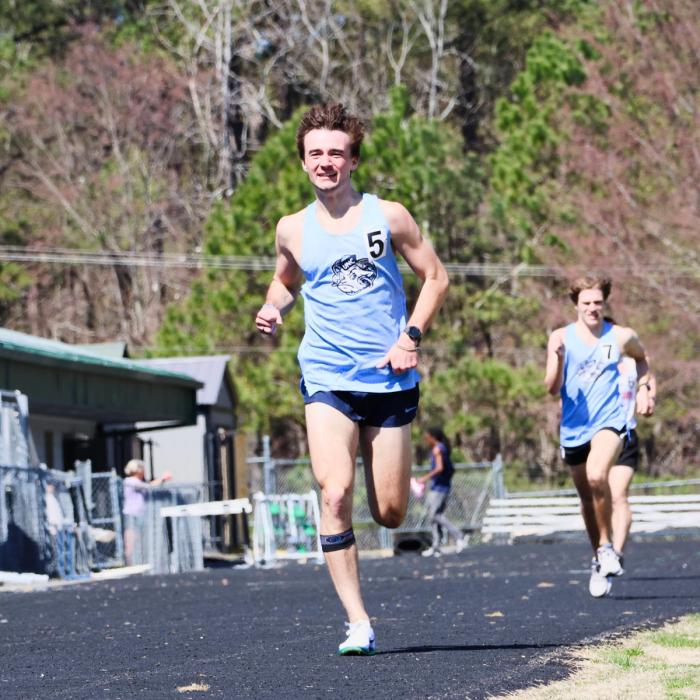
Keenan Baker
Keenan Baker is a track fan. He’s also a journalism major and writer at UNC-Chapel Hill. Putting both of those passions on the page together is the goal, and he looks forward to covering more track and field with CITIUS MAG this summer!
